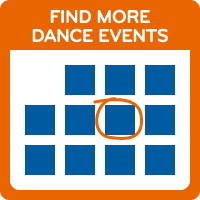Testimony to City Council Committee on Cultural Affairs, Libraries and International Intergroup Relations
Tuesday, September 14, 2021
Testimony to City Council Committee on Cultural Affairs, Libraries and International Intergroup Relations
On behalf of Dance/NYC (www.dance.nyc), a service organization that serves over 5,000 individual dance artists, 1,200 dance-making entities, and 500 non-profit dance companies and the many for profit dance businesses based in the metropolitan New York City area, including BIPOC (Black, Indigenous, and Peoples of Color) dance workers, immigrants, and disabled dance workers. Dance/NYC embeds the values of justice, equity, and inclusion into all aspects of its operations and frames the following requests through the lens of those values. Dance/NYC joins colleague advocates working across creative disciplines in thanking you for your leadership during this time.
We express our gratitude to the City Councilmembers, City Officials, Mayor’s Office and other dedicated workers who have contributed to the creation of the Open Culture program and for considering its extension. Open Culture has the potential to help support arts and cultural workers in New York City as they continue to adapt to the new realities of the ongoing COVID-19 pandemic. Moving forward with Open Culture as a permanent City program is a substantial step for the long-term recovery of the arts and culture sector. With gratitude, we believe that there are comprehensive improvements to be made to the program in order for it to be financially, logistically, and administratively beneficial and accessible to dance making entities, groups and workers, specifically those operating with small budgets:
- Make Open Culture a permanent City program with designated funding, oversight, and program review and evaluation processes;
- Designate separate monthly event limits for eligible individuals, organizations, and groups; and
- Provide specific guidelines and templates for arts workers and organizations operating Open Culture events to comply at minimum with ADA regulations and local, state, and federal mandates regarding COVID-19.
Since its inception in March 2021, the Open Culture program has provided opportunities for over 450 outdoor rehearsals, performances, and events to take place throughout the City. This has greatly shifted the way that artists and community members think about the place arts and culture occupies in their lives and neighborhoods. Extending Open Culture to become a permanent City program is a crucial investment in the resilience and long-term recovery of the arts and culture sector. Designated funding, oversight, and program evaluation and review processes are necessary in order for this program to be successful and sustainable for arts and cultural workers. With the current variety in Open Culture sites and the proposed expansion of new sites, City oversight, along with community input, is needed in the evaluation of these sites, specific consideration should be given to structural elements, use of amplified sound, logistical limitations, and seasonal variations. This will allow arts workers and cultural organizations to more effectively meet the needs of the dance making entities, groups, and workers not only in the selection of sites, but also in the implementation of appropriate and necessary accessibility and health and safety measures for arts workers, event staff, and community members.
As Open Culture permitting stands, participants are allowed a maximum of four days per month per location to perform regardless of whether they are a cultural venue, independent arts organization, or sponsor organization with Department of Cultural Affairs or borough arts council funding. With the proposal to expand eligibility to include fiscally-sponsored projects and City Artist Corps grantees in addition to qualifying cultural venues, organizations, and sponsors, these time constraints need to be reconsidered, specifically in terms of sponsor organizations. Sponsor organizations are able to help present artists who would otherwise not qualify on their own for Open Culture. However, the amount of opportunities sponsors can offer for these individuals and groups is severely limited by the current constraints. Sponsor organizations are being held to the same limits as cultural organizations and individual arts workers, regardless of whether the arts workers they sponsor are different for each of those days. This precludes their ability to sponsor a greater variety of arts workers and groups. We ask going forward that the monthly limits on performance days be designated separately for cultural organizations, fiscally-sponsored projects, and City Artist Corps grantees, and that no limitations be placed on sponsor organizations. Designating separate limits for each qualifying group would allow for more equitable opportunities for Open Culture program participation, particularly for small groups and individual arts workers seeking sponsorship.
Lastly, the City has created some resources for Open Culture participants to reduce the logistical burden on arts and cultural organizations, such as templates for COVID-19 spacing requirements, social distancing, ingress and egress, and accessibility signage. Further guidance is needed for organizations and individual arts workers to effectively implement accessibility measures that are at minimum ADA-compliant and COVID-19 health and safety protocols for staff, participants, and audience members. There is a need for additional templates and support for event preparation and on-site event materials that would greatly facilitate compliance with ever-changing COVID-19 safety regulations, including vaccination, testing, masking, contact tracing, and maximum capacity regulations. These necessary resources provided by the City would allow equitable access to and standardized implementation of Open Culture events to support the health and safety of arts workers, event staff, and community members.
Taken together, these measures stand to make the Open Culture program more accessible, equitable, and sustainable for the arts workers involved and the communities they serve. We thank the City for your consideration and commend New York City’s ongoing efforts to support the recovery of the arts and culture sector. We look forward to the opportunity to make Open Culture a mutually beneficial permanent program that ensures New York City remains a vibrant capital for arts and culture.
##

